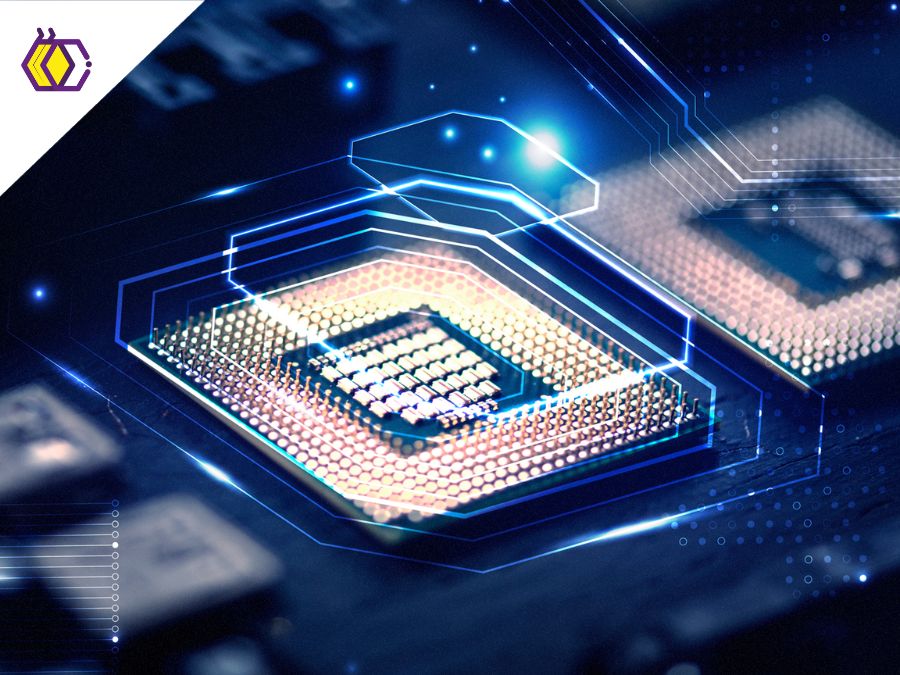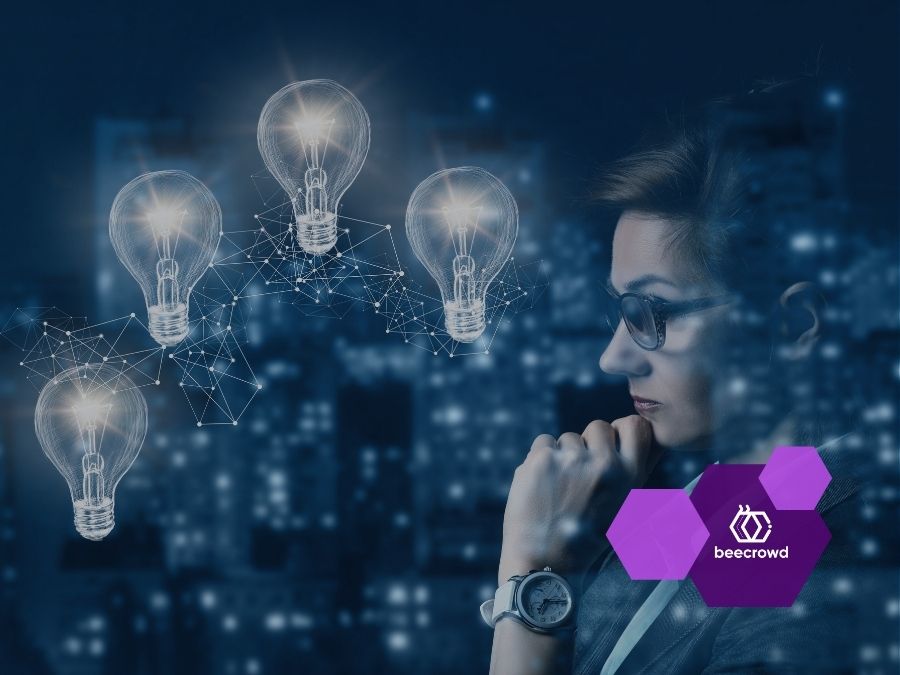

Quantum Computing
(9 minutes of reading) If you're a programmer and have been following emerging trends in the world of technology, you've probably heard about quantum computing. This technology promises to revolutionize the way we process information and has the potential to play a transformative role in areas such as artificial intelligence, cryptography, and simulation of complex systems. But what is the essence of quantum computing and how does it differ from the classical computing we know? Come read our article to find out more about this hot topic! BASIC PRINCIPLES OF QUANTUM COMPUTING The central difference between classical and quantum computing lies in information and how it is manipulated. In classical computing, the fundamental unit of information is the bit, which can be in one of two states: 0 or 1. In quantum computing, the unit of information is the qubit (quantum bit), which can be in a superposition state, representing 0 and 1 simultaneously. This ability for a qubit to be in superposition is one of the pillars of quantum mechanics. Instead of having a definitive answer like in the classical world, superposition allows us to calculate several possibilities simultaneously. However, when a qubit is measured, it "collapses" into one of the possible states, 0 or 1. Another fundamental property is entanglement, where qubits can become interdependent, such that the state of one qubit can depend on the state of another, regardless of the distance that separates them. This allows information to be transmitted in ways previously considered impossible in the classical world. HOW TO PROGRAM QUANTUM COMPUTERS Given the fundamentally different nature of quantum computers, quantum programming requires a different approach. Instead of sequential instructions, quantum programming involves applying mathematical operators, known as quantum gates, to qubits. These gates allow us to manipulate superpositions and interlacing, enabling massively parallel operations. Quantum programming languages and frameworks, such as Microsoft's Q#, IBM's QuTiP, and Qiskit, have been developed to facilitate the creation of quantum algorithms. These frameworks allow programmers to design quantum circuits and test their functionality, often using simulators before running on a real quantum computer. WHAT CAN QUANTUM COMPUTERS DO? The power of quantum computers doesn't mean they will replace our traditional PCs and servers. In fact, they are suited to specific tasks that are inherently difficult for classical computers. Shor 's Algorithm, which can factor large numbers in polynomial time, a problem for which we do not have an efficient solution in classical computers. If implemented, this algorithm could break many cryptographic systems currently in use. Another promising application is the simulation of quantum systems. For example, understanding chemical reactions at the molecular level or designing new materials with desired properties can be much more efficient with the help of quantum computers. CHALLENGE FOR PROGRAMMERS Despite its great potential, quantum computing presents challenges. Decoherence, where quantum information is lost due to interactions with the environment, is a significant problem. Errors are also inherently more problematic in quantum computing, requiring advanced error correction techniques. For programmers, this means that developing quantum algorithms is not just about optimizing efficiency, but also about ensuring accuracy in a system that is fundamentally prone to error. FUNDAMENTALS OF QUBITS AND QUANTUM GATES As previously mentioned, unlike bits, which clearly represent a 0 or a 1, qubits operate in a superposition state. In other words, a qubit can represent 0, 1, or both simultaneously. When we talk about 'both', we refer to different probabilities associated with a qubit of being measured as 0 or 1. This characteristic is vital to the parallelism inherent in quantum computing. Quantum gates are operators that act on one or more qubits. Just like in classical computing, where we have logical gates (AND, OR, NOT), in quantum computing we have gates that manipulate qubits, such as the Hadamard , Pauli-X, Pauli-Y, Pauli-Z and CNOT gates, just to name a few. QUANTUM ENTANGLEMENT Entanglement is one of the most intriguing and powerful properties of quantum mechanics. Entangled qubits have their states dependent on each other, even if they are separated by large distances. This means that the measurement of one qubit immediately determines the state of the other, regardless of the distance separating them. DEVELOPING QUANTUM ALGORITHMS Quantum programming is not just a matter of learning new syntax; it's a fundamental reassessment of how we approach computational problems. For example, Grover's algorithm allows faster searching in an unstructured database than any classical algorithm. While a classical algorithm may need N attempts to find an item in a database of size N, Grover's algorithm only needs about ?N attempts. QUANTUM COMPUTING AND CRYPTOGRAPHY The potential threat of Shor 's algorithm to current RSA-based cryptography raises questions about the security of many of our digital transactions. However, there is also a positive side: quantum cryptography, which uses the properties of quantum mechanics to create secure keys and detect any interception attempts. TOOLS AND PLATFORMS FOR PROGRAMMERS Several companies and research organizations have developed frameworks for quantum programming: IBM's Qiskit: One of the most popular libraries, Qiskit is an open-source tool that allows programmers to create, simulate, and run quantum programs. Q# from Microsoft: Integrated with Visual Studio, Q# is a high-level quantum programming language with its own development suite. Cirq by Google: Specializing in creating quantum circuits, Cirq was designed to make it easier for researchers to upload experiments to Google's quantum processors. THE FUTURE OF QUANTUM COMPUTING What can we expect from quantum computing in the future? For many experts, the hope is to achieve "quantum supremacy," the point at which a quantum computer can perform a task that would be virtually impossible for a classical computer. Furthermore, the advent of more robust and affordable quantum computers will see a rise in "hybrid computing", where quantum and classical computers work together to solve problems. CONCLUSION For programmers, quantum computing represents an exciting frontier with unprecedented challenges and opportunities. While the learning curve is steep, the reward is the ability to work at the forefront of the next computing revolution. Whether learning about the fundamental properties of quantum mechanics or exploring new algorithms and applications, there is a lot to discover and innovate, this is certainly an exciting time. With quantum hardware emerging and programming tools becoming more mature, there are significant opportunities for innovation. The transition to quantum computing will not be immediate nor will it completely replace classical computing. Instead, a coexistence is expected, where quantum and classical computers work together to solve problems. For programmers, understanding this new form of computing will be critical to staying relevant in a rapidly evolving technological world. As you delve deeper into the world of quantum programming, challenge yourself to think beyond traditional paradigms. After all, we are on the cusp of a new era in computer science, and the future promises to be quantum! And there? What did you think of our content? Be sure to follow us on social media to stay well-informed!
Share this article on your social networks:
Rate this article:
[yasr_visitor_votes size=”medium”]



